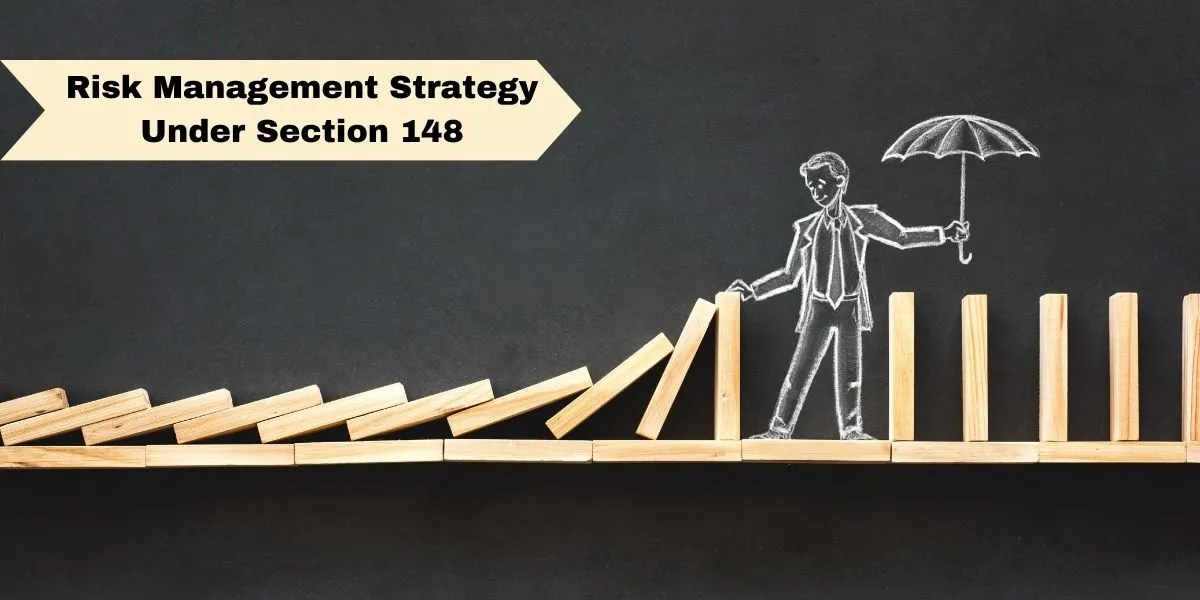Risk Management Strategy Under Section 148 of Income Tax Act

Situations where the income has escaped assessment from income tax laws are not uncommon. This causes direct loss to the exchequer as the government does not receive its portion of taxes. To tackle such situations, the government has placed reassessment provisions under the Income Tax Act, 1961 that bring such escaped income to assessment. However, these provisions have undergone significant changes, especially after the release of the Finance Act, 2021 and Finance Act, 2022. The government also started utilising the technology to make the reassessment process seamless and accurate.
One of the significant changes was the implementation of the Risk Management Strategy under Section 148 and the laying down of information under section 148 of the act. This signifies when a notice of reassessment can be issued under the income tax law and how the government will be identifying assesses whose income has escaped assessment. Let’s understand the risk assessment strategy and information under section 148 in detail.
What is Risk Management Strategy Under Section 148?
While the income tax department has not clarified the risk management strategy in the entirety, we may refer to it as any strategy that can identify the non-compliant or doubtful assesses through the use of algorithms, technology and information available. This can also include flagging suspicious transactions.
What is Information?
As per Explanation 1 to Section 148 of the Income Tax Act, 1961, ‘Information’ means:
- any information in the case of the assessee for the relevant assessment year in accordance with the risk management strategy formulated by the Board from time to time; or
- any audit objection to the effect that the assessment in the case of the assessee for the relevant assessment year has not been made in accordance with the provisions of this Act; or
- any information received under an agreement referred to in section 90 or section 90A of the Act; or
- any information made available to the Assessing Officer under the scheme notified under section 135A; or
- any information which requires action in consequence of the order of a Tribunal or a Court.
Thus, beginning from 1st April 2021, notice under Section 148 can be issued if the assessing officer is in possession of any information as per Explanation 1 to Section 148 that suggests that income has escaped assessment.
Further, in cases where –
- a search is initiated under section 132 or books of account, other documents or any assets are requisitioned under section 132A, on or after 1st April, 2021, in the case of the assessee; or
- a survey is conducted under section 133A, other than under sub-section (2A) of that section, on or after 1st April, 2021, in the case of the assessee; or
- the Assessing Officer is satisfied, with the prior approval of the Principal Commissioner or Commissioner, that any money, bullion, jewelry or other valuable article or thing, seized or requisitioned under section 132 or section 132A in case of any other person on or after 1st April, 2021, belongs to the assessee; or
- the Assessing Officer is satisfied, with the prior approval of the Principal Commissioner or Commissioner, that any books of account or documents, seized or requisitioned under section 132 or section 132A in case of any other person on or after 1st April, 2021, pertains or pertain to, or any information contained therein, related to, the assessee,
the assessing officer shall be deemed to have information that suggests income escaping assessment in case of the assessee where the search is initiated, books or assets are requisitioned or a survey is conducted in case of the assessee or the specified assets, books and documents are requisitioned or seized in case of any other person.
Shortening Time Limits
The government has reduced the time limit for issuing notice under section 148 for income escaping assessment from 6 years previously to 3 years. It is only in case of serious tax evasions involving income escaping taxes of Rs. 50 lakhs or more that the reassessment can be opened up to 10 years. For that, the assessing officer should have evidence of concealment of income exceeding Rs. 50 lakhs.
In a Nutshell
The reassessment provisions have seen significant changes in the past 2-3 years. The government has expanded the scope of information and employed technology to identify the cases of income escaping assessment and bring such income to taxes. The risk management strategy could turn out to be a game changer in the coming years to curb tax evasion in India. In case you need any assistance in relation to taxation matters, feel free to contact the ASC Group.
Also, Check "How enterprise risk management can help your organization to grow"

Leave a Reply